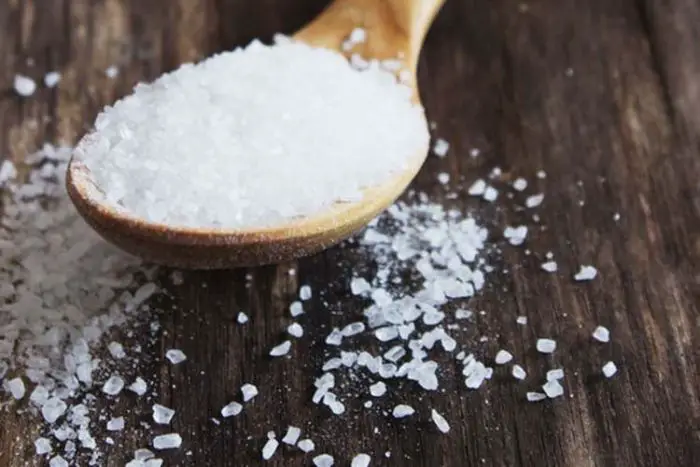Epsom Salt is commonly used to dissolve in water to be used as a home remedy which can be used for skin conditions such as Eczema, but can Epsom Salt help Eczema?
What is Epsom Salt?

Epsom Salt is not table salt that we use in our foods, it is a magnesium sulfate compound that has been used for hundred of years. It can be used as a healing agent or pain reliever. It is now commonly used to add into baths to reduce stress.
Despite it having magnesium, there is only a small amount that can be absorbed by skin. To this day, there is no scientific evidence to show that it can increase magnesium levels in the body. More research is needed to support the claims of using Epsom Salt to treat infections and promote healing.
Can Epsom Salt help Eczema?
The National Eczema Association recommends moisturizing immediately after a bath. It is regarded as the best way to replace moisture in the skin.
However, there is no scientific proof that Epsom salt can relieve the symptoms of Eczema despite having anecdotal use. Using Epsom Salt in bath water can have a soothing and relaxing effect, but it is unclear if the relief symptoms can from the Epsom Salts.
Using Epsom Salt in Baths
If you want to trial Epsom Salts, the National Eczema Association has given their recommendations on how to implement it in your routine.
- Use 1 to 2 cups of Epsom Salts in a lukewarm bath, NEVER hot or in a bath with jets
- Soak in the bath for 5 – 10 minutes
- Avoid any soaps or waterless antibacterial cleansers. Avoid any dyes and fragrances.
- Leave your skin lightly damp, use a soft towel to pat any excess moisture
- Apply any prescribed tropical medication if needed or a moisturizer after within 3 minutes.
Bath Alternatives
If you are not convinced by Epsom bath salts for Eczema, there are alternative methods that you can try. You can add the following to your baths:
- Bleach or vinegar, for limiting bacteria. NOTE you must consult a doctor for the ratios, do not attempt this before getting professional advice.
- Bath oils, good for moisturizing.
- Colloidal oatmeal, traditionally used for relieving itch.
- Sea salt, to reduce itching and redness.
For more Eczema articles, please click here.

